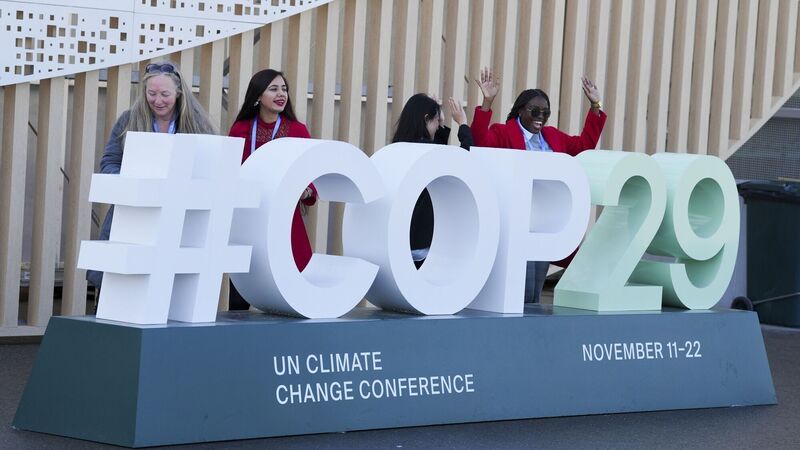As COP29 approaches, a coalition of over 650 financial institutions managing assets exceeding $33 trillion USD is urging world governments to take bold climate action. This demand, encapsulated in the 2024 Global Investor Statement to Governments on the Climate Crisis, highlights the private sector’s commitment to mitigating environmental risks while accelerating the transition to a net-zero economy. In this deep dive, we will unpack the key elements of this statement, the specific policy requests, and the global implications for governments, investors, and climate-related market shifts.
The Economic Imperative for Climate Action
The financial community is increasingly aware of climate-related risks and the economic opportunities in transitioning to net-zero. With a collective commitment to sustainable investing, investors like Allianz, Aviva, BlackRock, BNP Paribas, and the Church of England Pensions Board emphasize the growing need for favorable policies to drive capital toward climate mitigation.

Public policies, such as the U.S. Inflation Reduction Act and the European Union’s Fit-for-55 package, have catalyzed investments in clean energy, contributing to a 40% surge in global clean energy investment since 2020. Despite reaching an estimated $1.8 trillion USD in 2023, this figure remains well below the $4.8 trillion USD annually required to meet net-zero goals by 2050. The statement underscores that without these policies, the markets will be less conducive to the private sector, stalling progress and reducing returns for investors and their clients.
Investor Policy Requests for COP29
The signatories outlined five key policy actions they urge governments to adopt:
- Economy-wide Public Policies
Investors demand that governments align 2030 and 2035 targets with a 1.5°C scenario, ensure incentives for sustainable technologies, and implement rising carbon pricing. These measures are seen as critical to scaling investment in renewable energy and supporting adaptation in underserved communities, especially in emerging markets. - Sectoral Transition Strategies
Targeting high-emission sectors, investors advocate for low-carbon energy infrastructure, the elimination of fossil fuel subsidies, and support for electrification. Notably, the statement highlights the importance of methane reduction, emphasizing the Global Methane Pledge, which calls for a 30% reduction from 2020 levels by 2030. - Nature and Biodiversity
With climate impacts on water resources and ecosystems disproportionately affecting emerging economies, the statement urges investment in nature-based solutions and enhanced biodiversity strategies. The signatories support initiatives like the Global Biodiversity Framework and call for halting deforestation and ecosystem degradation. - Climate-Related Disclosures
To increase transparency, investors propose mandatory climate risk disclosures across the financial sector. The recommendation includes the public disclosure of science-aligned transition plans and Scope 1, 2, and 3 emissions, guided by frameworks such as the Taskforce on Climate-Related Financial Disclosures (TCFD). - Enhanced Private Sector Investment in Emerging Markets
A critical focus of COP29, the statement emphasizes the need to direct climate finance to emerging markets, where vulnerabilities are greatest. Suggested actions include credit-enhancement programs and collaborative platforms to channel resources effectively to these regions.
Financing the Transition: Emerging Market Focus
Emerging markets face a significant investment gap, especially in the wake of growing climate challenges. The signatories highlight that developed markets have historically captured the lion’s share of clean energy investments, while developing economies, particularly in Africa and South Asia, are underfunded. This imbalance is projected to grow as climate impacts intensify, making it essential for COP29 to introduce mechanisms for scaling climate finance to developing regions.
By establishing a New Collective and Quantified Goal (NCQG) on Climate Finance, governments can create a framework that not only addresses the financing needs of emerging economies but also aligns with the ambitions set for the next round of Nationally Determined Contributions (NDCs) ahead of COP30. This approach would ensure equitable financing and support a just transition for all nations.
The Role of Private Sector Collaboration
The statement emphasizes a “whole-of-government” approach, which would align public policy with the private sector’s goals of achieving a net-zero economy by 2050. This collaboration extends beyond policy support; it involves fostering innovation and promoting sustainable products through government procurement standards. Investors argue that by embracing these principles, governments can stimulate economies of scale for low-carbon goods, thereby reducing costs for consumers and enhancing market growth for green technologies.
Additionally, sector-specific strategies would drive systemic changes, especially in high-emission areas like transportation and heavy industry. The report underscores that reducing emissions is not solely dependent on policy measures but also on enhancing public-private partnerships and expanding renewable energy infrastructure, especially in regions heavily reliant on fossil fuels.
Among the Signatories
The 2024 Global Investor Statement has garnered support from a wide array of global financial leaders, including:
- Allianz
- Aviva Investors
- BlackRock
- BNP Paribas
- Church of England Pensions Board
- CalPERS (California Public Employees’ Retirement System)
- CDP
- Desjardins Group
- Fidelity International
- Generali Investments
- Legal & General Investment Management
- Mitsubishi UFJ Financial Group (MUFG)
- Natixis Investment Managers
- New York State Common Retirement Fund
- Norges Bank Investment Management
- Ontario Teachers’ Pension Plan
- Pictet Group
- Robeco Institutional Asset Management
- Sumitomo Life Insurance Company
- UBS Asset Management
- Unitarian Universalist Common Endowment Fund
- Vancity Investment Management
- Wellington Management
- West Yorkshire Pension Fund
- Zurich Insurance Group
Each signatory brings unique strengths and mandates, collectively representing a wide range of interests and capabilities across global markets.
Climate Insider Analysis
The 2024 Global Investor Statement reflects the increasing alignment of the financial community with ambitious climate goals. This declaration is not merely a call to action but a comprehensive policy roadmap outlining how public-private partnerships can catalyze a just transition to net-zero. The push for mandatory climate disclosures and sectoral transition strategies marks a significant shift toward transparency and accountability in managing climate risks.
Notably, the emphasis on emerging markets signals a pivotal moment for international climate finance, potentially reshaping investment flows towards regions most vulnerable to climate impacts. If COP29 delivers on these requests, it could accelerate the deployment of climate capital and provide a model for addressing the equity gap in global climate action.
For policymakers, COP29 presents an opportunity to bridge the financing divide and empower the private sector to invest effectively. However, without robust action on these recommendations, the path to 1.5°C may remain out of reach. This statement, backed by $33 trillion USD in managed assets, underscores that global investors are ready to act; it is now up to governments to create the conditions necessary to realize these ambitions.








